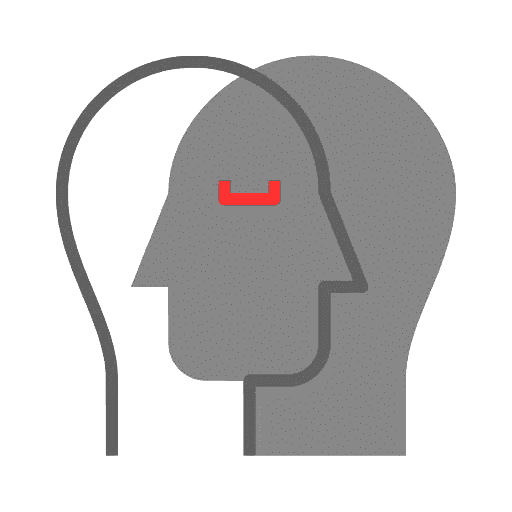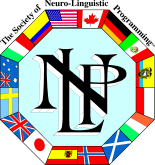
In NLP Rapport is the presence of trust, harmony and cooperation in a relationship. Rapport is created and maintained on different levels. Guess what, the usage Rapport can be dangerous! Asking the wrong questions can easily reduce or break rapport. We already explained in some other posts how to train yourself in utilising the same representational system as the partner you are having a conversation with. Actually it requires that the person you are talking with break or reduce rapport with you by themselves. By tuning out the world and searching in their minds. By tuning out the world, they are reducing sensory contact with you while they do lots of deeper and deeper searches through their internal experience to answer your questions.
Learning about NLP Rapport
When I first learnt about Rapport, I wanted to run out and use it with everyone – I was like a kid in a candy store. And I learned it before I got good at physical rapport building. Sure enough, I did use Rapport frequently at first. And I annoyed most of my friends and family and new acquaintances. I became good at it, but, no one wanted to talk to me for a week or two. Which did not help things.
So to figure out what I did done wrong, I had to take a few steps back. I had to realise that at the time, I had not yet begun to building some internal checks in and around each question I was asking. I wanted to build in checks to find out if the people I was talking with were still enjoying our conversations, if they were in physical and verbal rapport with me, etc.
If you do not yet know much about nonverbal rapport, I recommend you read “The Definitive Guide to Body Language” by Allan and Barbara Pease.
How to use NLP Rapport
Another part on utilising Rapport is asking the right questions. The right questions will make your talks with anyone so much easier. In NLP there is a great tool called the Meta-Model. Again, be careful! Meta-Model questions can be easily overdone. So the Meta-Model breaks rapport or can contribute to losing rapport. Also, the Meta Model itself is Recursive. It means you could use the same kind of questions over and over again, as you drill deeper and deeper into the details of someone’s subjectivity. So you could be running a never-ending search for more information with increasingly “accurate” details. You know or feel when you have got enough information to work with and stop before the rapport is lost because you annoy or bore your subject to death.
Now, Rapport can be established at different levels. Utilising the same representational system is one. Think of other ones as like mirroring body posture, the rate and speed of breathing, same clothing, the options are legion! As an exercise, start to observe first. See how a person behaves, moves, talks, breathes. Then you start to copy-cat that behavior a bit and see what changes in the conversation. Does it become easier to have the conversation? Then, expand it. Like a chameleon you start to adapt the same breathing-rate, postures and gestures of hands. Again, remember that the moment you do it too obvious or too much, you will break rapport easily, so practice with care!
Another great exercise is to mimic your favorite actor. Start to impose you are that person. Start to actively role-playing. As you make yourself more flexible in “stepping into someone’s else skin” the more easy you are able to build rapport at various levels!
Rapport leads to Trust
Building rapport actively with all your NLP skills, leads to a level of trust by the receiver of your message. Rapport is the foundation for building trust. Establishing a connection and understanding between people creates a sense of harmony and mutual respect, making it easier to build trust over time. Trust, in turn, is the deeper, longer-term bond that results from consistent actions, reliability, and open communication.
Rapport is almost similar to trust. You can build trust and rapport simultaneously, where rapport focuses more on establishing a bond or connection, whereas trust relies more on establishing a reputation for reliability, consistency and keeping your promises.
Trust is crucial for strong relationships, effective communication, and collaboration. It creates a sense of safety and allows individuals to feel comfortable sharing their thoughts and ideas.
Trust leads to Understanding
Trust and understanding are deeply connected. When someone trusts another, they are more willing to be vulnerable and share information, leading to deeper understanding and stronger relationships. Trust acts as a foundation for communication and collaboration, facilitating the exchange of ideas and building mutual respect. Conversely, a lack of trust can hinder understanding, creating barriers to communication and fostering suspicion.
Understanding leads to Results
Understanding the person you communicate with is crucial for achieving desired results. It encompasses comprehending the person you communicate with, their needs, and the effectiveness of your strategies.
This mutual understanding leads to better idea generation, more targeted goals and activities, and ultimately, increased outcomes of goals you are presenting.
Summarizing NLP and Rapport
Neuro-Linguistic Programming (NLP) is a communication and behavioral approach that emphasizes the connection between neurological processes, language, and behavioral patterns to achieve desired outcomes. Rapport, a key component of NLP, involves building a strong, positive connection and sense of trust with others, often through mirroring and matching their verbal and nonverbal behaviors.
Building Rapport leads to trust, you need trust from people to accept the topics you are presenting. Trust on its turn builds upon rapport and allows you to gain permission to present new ideas, new behavior and new goals. Understanding provides a level to present your new suggested topics. Ultimately understanding provides a fundament to think with your client, leading to results.
Remember this mantra: Rapport leads to Trust, Trust leads to Understanding and Understanding leads to Results. Happy building Rapport!
About Niels Ammerlaan
Niels is a business professional with an impressive background and a wealth of experience. As a Certified Licensed Master Trainer of Neuro-Linguistic Programming by the Society of NLP and Dr. Richard Bandler, Niels brings a deep understanding of how language and behavior can influence personal and professional development.
With over 30 years of experience in the fields of Information Technology and Business, Niels has honed a unique skill set that bridges technical expertise with strategic business insights. His extensive career has equipped him with the tools to navigate complex challenges and implement effective solutions.
Currently, Niels serves as the Managing Partner at Mind Tools, where he leverages his vast experience to help individuals and organizations achieve their full potential. Under his leadership, Mind Tools offers innovative training programs and consulting services designed to enhance performance, foster growth, and drive success.
Niels’ commitment to excellence and passion for empowering others make him a valuable asset to the Mind Tools team and a trusted advisor to clients seeking to improve their skills and achieve their goals.


